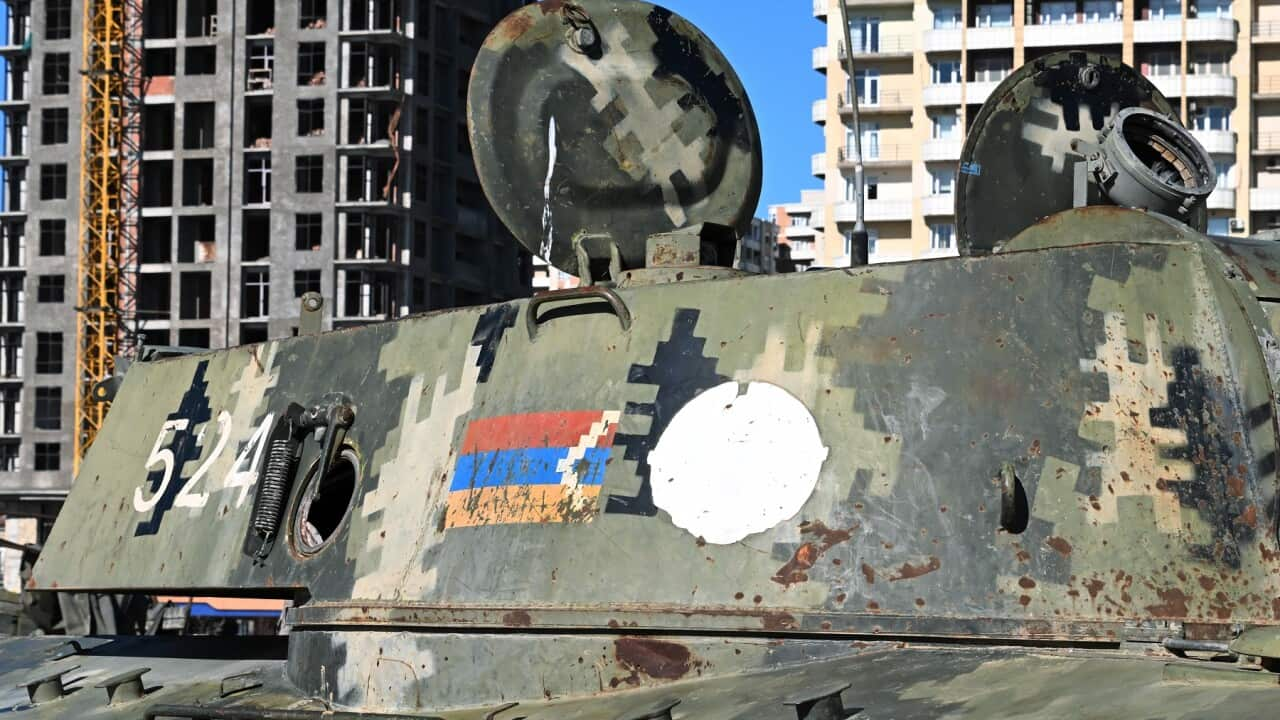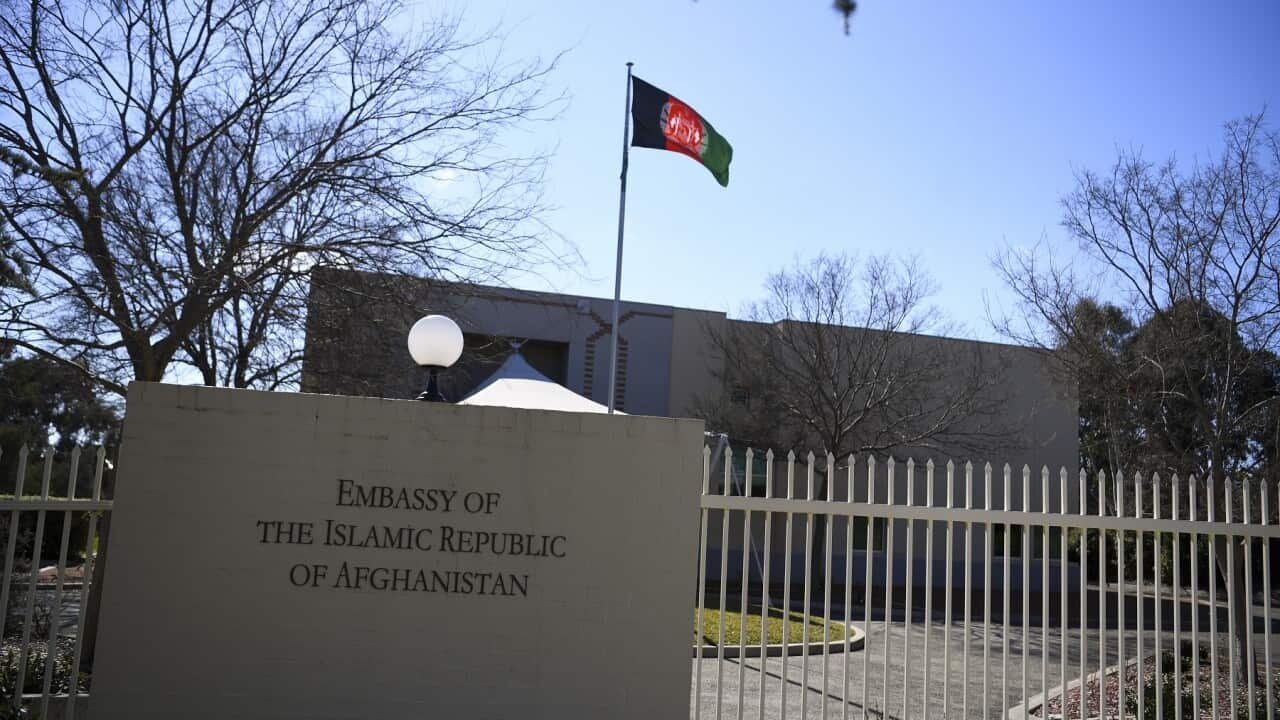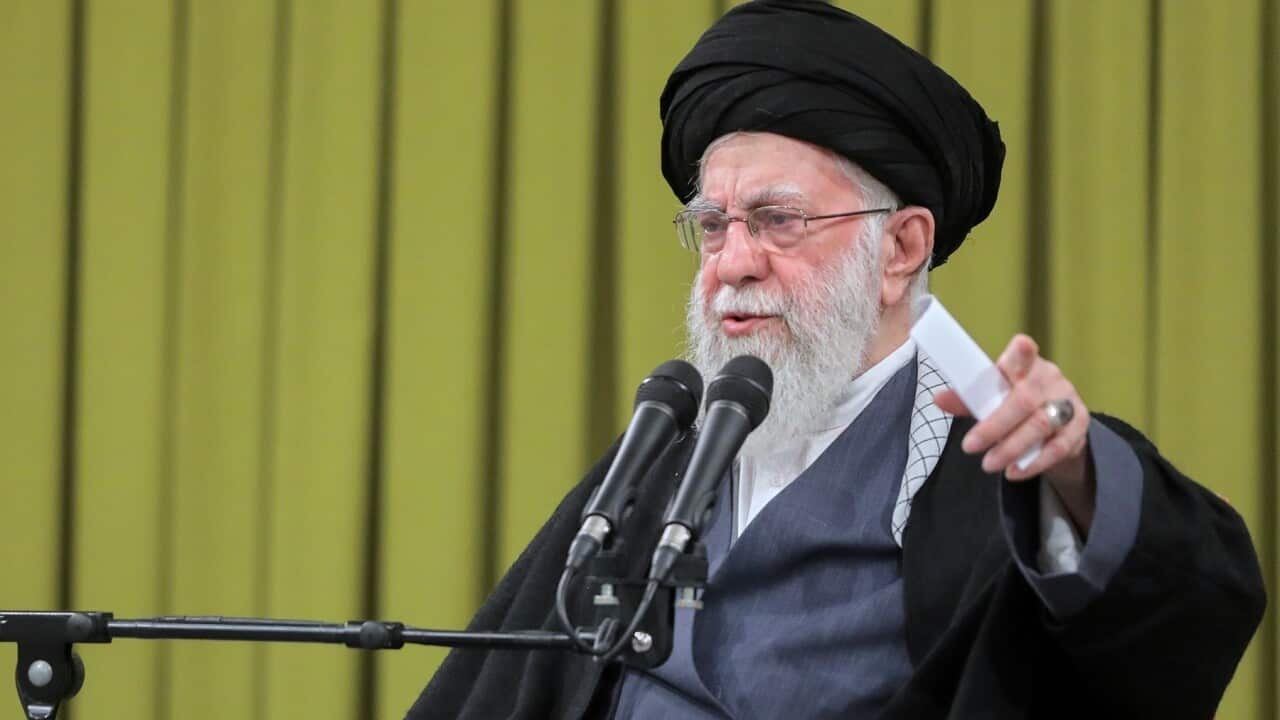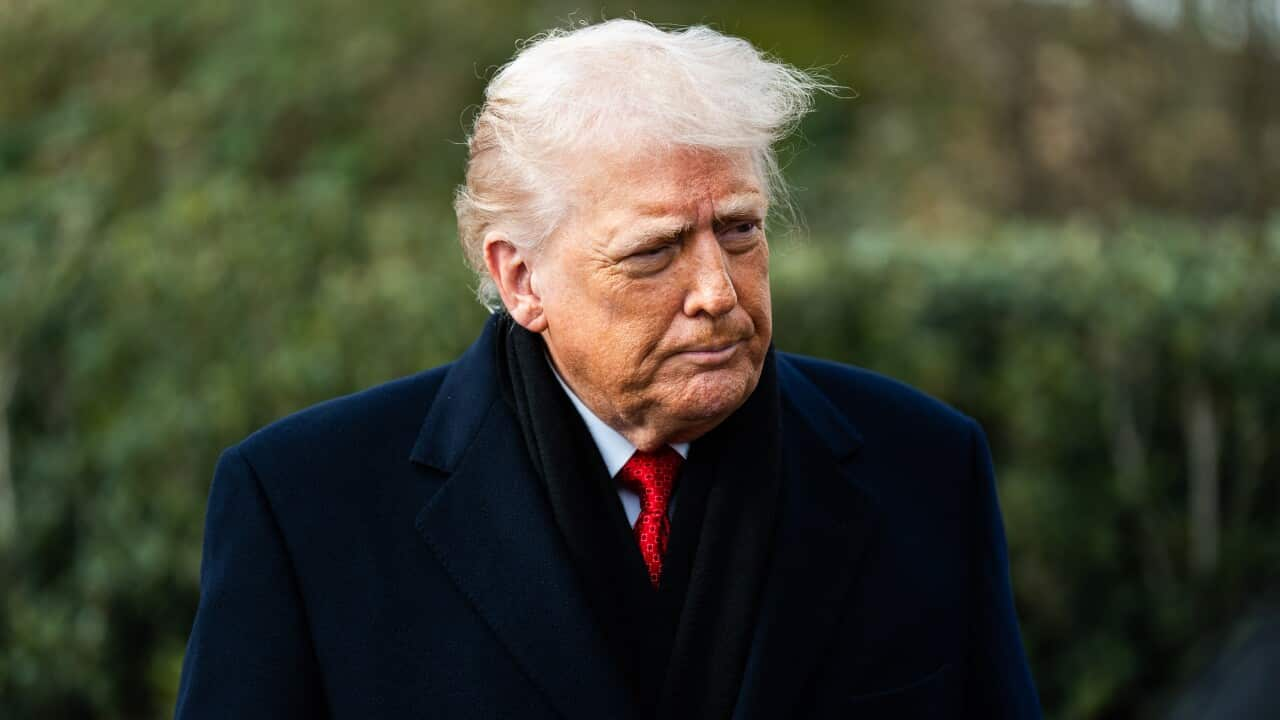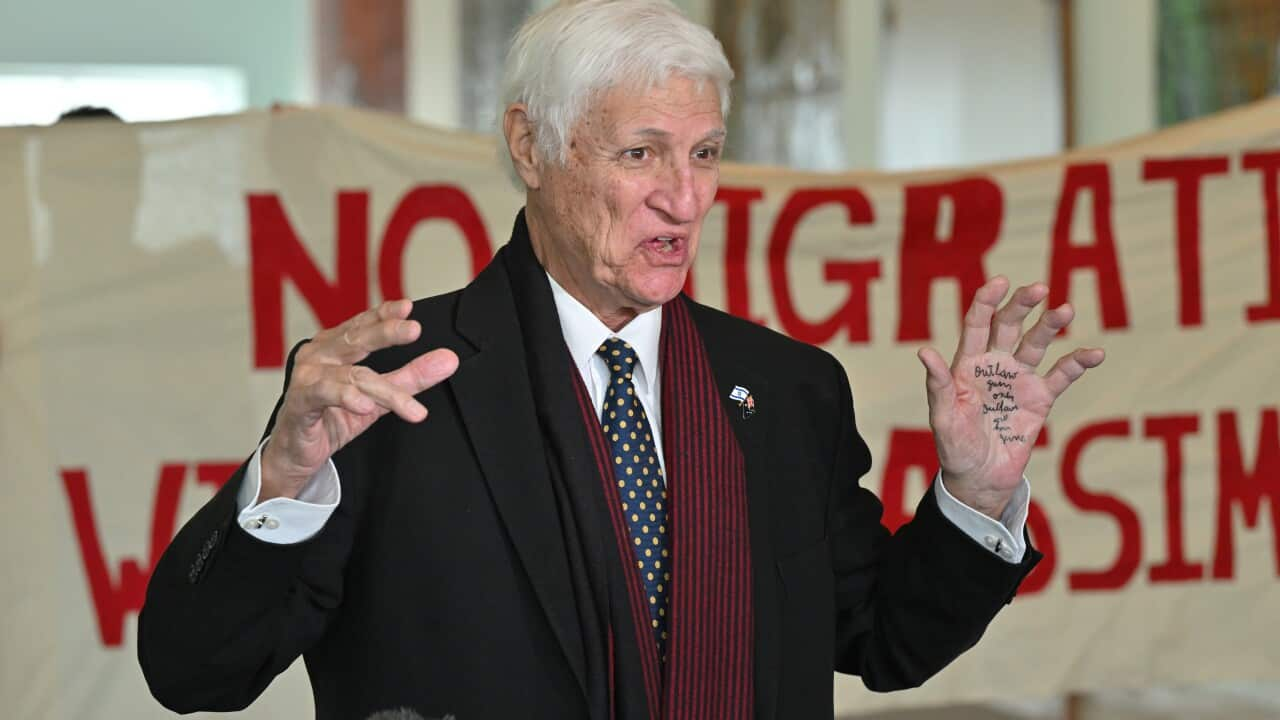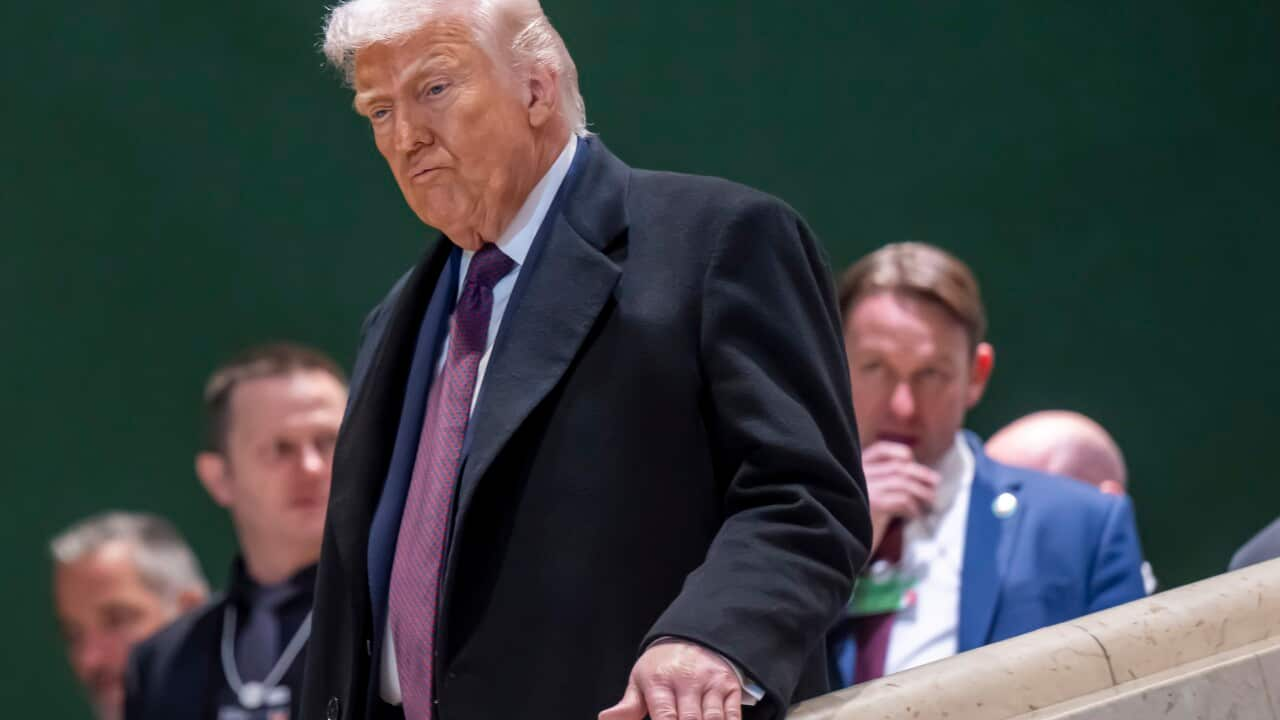Listen to Australian and world news, and follow trending topics with SBS News Podcasts.
TRANSCRIPT
A military flare-up along the border of Armenia and Azerbaijan is stoking tensions between the long-time rivals, with concerns the escalation is threatening to thwart peace talks.
Four Armenian soldiers were killed on Tuesday ((13/02)) and one was left injured in a border skirmish that both countries accuse each other of provoking.
This is the first fatal incident since the two countries commenced peace talks last year, working to bring an end to a thirty year conflict.
A member of Armenia's National Assembly, Hayk Mamijanyan, says the attacks were inside Armenian territory.
"The Armenian soldiers, who were killed by Azerbaijani armed forces, were (killed) from the Azerbaijani military position that is located inside of Armenia. These are the territories that were invaded by the armed forces of Azerbaijan, this is a part of Azerbaijan's continued systemic policy. Azerbaijan has always been creating artificial grounds for aggression and for attacks, for crimes against Armenia and Armenian people."
Azerbaijan's Foreign Ministry Head of Press, Aykhan Hajizada says Azerbaijan was launching a 'revenge' operation against Armenia, accusing them of opening fire along a militarised border further north.
"As you know, Armenian armed forces yesterday took military provocations against Azerbaijan armed forces. That resulted in injury of one Azerbaijan serviceman. Today Armenian foreign ministry claimed that the measures taken by Azerbaijan as retaliatory measures against armed forces of Armenia as a results of yesterday's attacks is an intended escalation, which is not true. Azerbaijan took these measures as a result of a provocation by the Armenian side. Azerbaijan is committed to the peace process."
It's the biggest flare up of tensions between the neighbouring countries since the exodus of Nagorno-Karabakh [[nuh-gawr-noh-kahr-uh-bahk]] in September 2023.
The exodus saw Azerbaijani forces blockade the territory of Nagorno-Karabakh, which, while internationally recognised as Azerbaijan, was home to over 120,000 Armenians who won independence after fighting a lengthy war during the collapse of the Soviet Union.
After nine months of military blockades, fears of starvation and ethnic cleansing drove out 99 percent of the Armenian population in Nagorno-Karabakh [[nuh-gawr-noh-kahr-uh-bahk]], prompting a refugee crisis in Armenia.
Mr Mamijanyan says Azerbaijan's attempts at resolution are not genuine.
"All the intentions, so-called intentions for peace that Azerbaijan is expressing are fake and these are to mislead the international community. In reality Azerbaijan continues its hostile and Armenophobic policies having the target to destroy Armenians and Armenia in its entirety."
Meanwhile, during the fifth meeting of the Armenia-E-U Partnership Council, E-U High Representative for Foreign Affairs and Security Policy, Josep Borrell, condemned the aggression from both sides.
"Armenian shooting of Azerbaijan soldier yesterday was deplorable, but Azerbaijan's response seems to be disproportionate, ignoring the announcement by the Armenian ministry of defence that this incident will be fully investigated."
The attacks come less than a week after Armenia was officially welcomed as the 124th State Party to the International Criminal Court's Rome Statute, a move its traditional ally Russia says is a snub to Moscow.
Armenia's Prime Minister Nikol Pashinyan told reporters from the Public Radio of Armenia that the country can no longer rely on Russia as its main defence partner following Moscow's failure to defend Armenians in Nagorno-Karabakh.
He says Armenia's ratification of the Rome Statute is not aimed at Moscow but is instead addressing alleged war crimes committed by neighbour Azerbaijan.
Armenia's Foreign Minister Ararat Mirzoyan spoke about the concerns at a ceremony welcoming Armenia's ratification of the Rome Statute.
"Unfortunately, in our region, we were confronted not only by complete unwillingness to resolve the issue by peaceful means, but also with a clear intent to proliferate war, hatred and terror, continued aggressions against the Republic of Armenia and occupation of our sovereign territories. Heinous atrocity crimes perpetrated against Armenians."
He says that by ratifying the Rome Statute, Armenia hopes to strengthen the rule of international law.
"Ethnic cleansing of Nagorno-Karabakh as a result of which over 100,000 Armenians had to escape their homes to find shelter in Armenia had devastating humanitarian consequences and continue to pose imminent risks for our region. In this context, we are convinced that the Rome Statute, among other mechanisms, has a real potential to prevent any further escalation and atrocities, becoming a milestone towards stability and sustainable peace in our region."
Both Russia and Iran are now calling on Azerbaijan and Armenia to show restraint moving forward.
Iran and Russia both share interests in the southern Caucasus [core-cay-suss]] and have been previously involved in attempted mediation between the neighbours.
Spokesperson for the U.S. State Department, Matthew Miller, says the recent clash undermines negotiations for peace.
"So we are concerned by the reports of deadly military-to-military clashes which resulted in several casualties. We offer our heartfelt condolences to the families of those killed and injured. The use of force undermines negotiations. The only way to a sustainable peace is at the negotiating table. Any ceasefire violations should be investigated and properly addressed. As the Secretary continually emphasises, the United States is committed to Armenia-Azerbaijan peace negotiations."
Armenia and Azerbaijan have been left largely on their own to conduct peace negotiations, as the international community holds focus on Gaza and Ukraine.
Fears remain among many Armenians, who say without mediators, they are at a disadvantage during peace negotiations, and that Azerbaijan intends on claiming more territory along its southern border with Iran.
Azerbaijani officials argue that outside mediators like the European Union and the United States cannot effectively mediate the issue, as they are not neutral.
